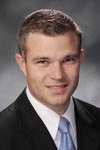JEFFERSON CITY, Mo. — Over the course of the next few years, Missouri lawmakers are going to have to tackle an increasingly complex problem: funding for the state’s massive road system. But as Republicans campaigning on reducing government spending continue to win elections and Missouri voters continue to reject tax increases for new roads projects, providing new money for MoDOT becomes increasingly murky.
Last summer, Missouri voters soundly rejected a proposed temporary sales tax increase to bring new funds to Missouri’s road system. The measure had both bi-partisan support, along with bi-partisan opposition. Gov. Jay Nixon exercised his executive authority to place the measure on the August primary ballot instead of the November general election. The move stopped any momentum for the measure before it began, and effectively guaranteed its failure.
A few weeks ago, Nixon directed the state’s highway and transportation commission to conduct a report on the efficacy of a toll road on I-70. The report ultimately states that an increase in MoDOT funding is the simplest solution for expanding and improving I-70 — which was originally constructed around 60 years ago and remains one of the state’s most critical avenues for commerce.
Since 2009, MoDOT’s funding has been essentially halved, down to about $685 million this year compared to $1.3 billion in 2009.
“I’m not 100 percent against toll roads, but I’m definitely against a state-run tolling system,” said Rep. Paul Curtman, R-Union. “I think we have a great Department of Transportation. But we have to strive for excellence.”

Curtman said many of his fellow lawmakers were split on whether or not MoDOT is in dire need of an infusion of funds. Missouri has the 7th largest highway system in the country with roughly 34,000 miles of roads and bridges. According to MoDOT, the state ranks a dismal 46th in funding for roads.
Earlier this month, MoDOT officials sounded the alarm about the continue drop in their funding, which is derived largely from federal matching funds and money from the state’s gas tax. Officials said that the state wouldn’t even have enough funds to match federal dollars by 2017, a move that would send those dollars to other states. MODOT’s continued calls for more funds have already earned them some allies who see the need as real and immediate. Minority Floor Leader Sen. Joe Keaveny, D-St. Louis, said “everybody realizes” the need to work on transportation on last Sunday’s “This Week In Missouri Politics.”
“We need to do something with Highway I-70,” Keaveny said on the program. “How we’re going to get there? That’s something we need to discuss. It’s going to be compromises on both sides.”
As gas prices continue to fall, and fuel-efficiency and environmentally conscious traveling is on the rise, funds dedicated directly to MoDOT have consistently dropped for years. Missouri also has a fairly low gas tax, one that hasn’t been raised in two decades
“There’s a lot of support for funding those roads with excise or user fees,” Curtman said. “The idea that those who use the roads who pay for them, that’s a pretty easy thing to understand.”
Unfortunately, raising the gas tax may be a difficult sell in a state that recently rejected sales tax increases on cigarettes to increase education funding and general sales tax increases to pour billions into new roads projects. Missouri voters haven’t historically been keen on tolling roads either. In 1970 and again in 1992, Missourians rejected toll road proposals at the ballot.
Rep. Scott Fitzpatrick, R-Monett, is poised for a 4-year run as House Budget Chairman starting in 2016. Fitzpatrick told The Missouri Times last week that Missouri may need to begin looking at other states or previously untested methods of funding roads.
Fitzpatrick said that MoDOT’s access to funds through the state’s gas tax — which is not subject to legislative appropriation — has kept lawmakers from embracing the idea of spending general revenue dollars on MoDOT. But if funds continue to decrease and a crisis becomes imminent, one debate Fitzpatrick is prepared to have is whether or not a portion of general revenue funds needs to be dedicated to MoDOT.
“The funding mechanism has precluded people from committing general revenue to MoDOT,” Fitzpatrick said.
Fitzpatrick said he expected legislation — potentially even his own — that would dedicate a portion of existing sales tax revenue to MODOT, provided state revenues were growing.
Adding even more mud to the waters is an audit expected before the end of the 2015 legislative session of all of MoDOT. Officials in Auditor Tom Schweich’s office said the audit currently happening at MoDOT is the most comprehensive the department has seen in years, and will be a “top-down” examination.

Many lawmakers uncertain about whether MoDOT indeed needs more funds or simply needs to use existing money more efficiently are patiently waiting on Schweich’s audit to cast judgment on MoDOT. An audit claiming the state’s road system is headed quickly into serious financial crisis would likely push more members of the majority toward conversations seeking new funding for roads. But should the probable 2016 candidate Schweich’s audit find that the department is wasteful or deeply inefficient, new money for roads may continue to be a distant fantasy.
Collin Reischman was the Managing Editor for The Missouri Times, and a graduate of Webster University with a Bachelor of Arts in Journalism.






